Going to the toilet may sound mundane, but it is such an important part of life. After all, healthy bowel and bladder habits are key to good digestive, excretory and overall health. Parents therefore need to inculcate and establish good toilet routines for children at the earliest opportunity.
Are they ready?
Most children will be ready to start toilet training at 18-24 months old. These signs will help you identify when your child is ready:
- Able to “hold” his pee/poop and have dry diapers for up to two hours.
- Tells parents with words/gestures when he has soiled his diaper.
- Starts to dislike wearing diapers or gets upset when it is soiled.
- Shows interest in using the toilet or wearing underpants.
- Becomes more independent (e.g. can pull his pants up and down) and is able to follow simple instructions.
Training time
It is best to start toilet training when there are no big changes coming up in your family life (like having a new baby or moving to a new house). Generally, it takes around 3-6 months for your child to get used to using the toilet. Here are some tips to help with toilet training:
- Set up a routine time to go to the toilet. This includes after waking up, after a meal, before going out, or before bedtime. Ask him to sit on the potty or toilet for about five minutes, but do not force him to sit if he does not feel like going.
- Ask your child to go to the toilet when you notice signs or clues that he needs to go to the toilet, like crossing legs, squatting, passing wind, changes in posture or expression, or when he isolates himself.
- Make sure his clothes are easy to take off by himself. Dress him in pants with elastic waistbands, instead of jumpsuit/rompers.
- Praise his attempts to use the toilet, especially when successful. Accidents will happen, but do not punish him or show disappointment.
- Make sure the toilet is comfortable and safe for use. Provide a foot stool and potty chair for him. Ensure the lighting is bright enough and the smell is pleasant with air fresheners. Keep things like toilet paper or soap within his reach, as he learns how to use them.
Good habits for life
Practising good bowel routines is beneficial for regular bowel movements and overall health. What we consume, must come out. The next step is for your child to cultivate the habit of passing motion regularly and with ease.
- Ask him to go to the toilet immediately whenever he feels the urge to urinate or pass a bowel movement. Holding his pee may result in urinary tract infections, while suppressing bowel movements leads to constipation.
- A good toilet position is helpful during toilet time. Teach your child to lean his body forward and raise his legs slightly while sitting on the toilet. Using a foot stool is useful to get the right angle.
- Regular exercises promote healthy bowel movements. It is recommended that children aged 6-17 years do at least 60 minutes of moderate-to- vigorous physical activity daily.
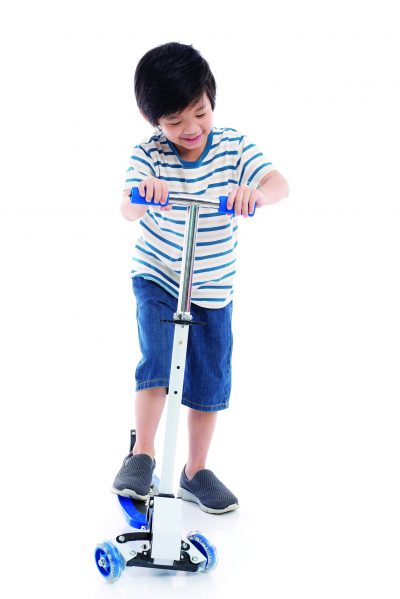
- Keep your child hydrated. Drinking enough water helps to soften stools and facilitate bowel movements.

- Dietary fibre intake from plants is important to increase the bulk of stools and make them easier to pass. Include sufficient fibre from whole grains, veggies and fruits in your child’s diet.

- Consuming probiotics helps to maintain the balance of gut microbiota, which is vital for digestive and overall health. A local study in 2018 shown that regular consumptions of probiotics L. acidophilus and L. paracasei found in cultured milk drinks are effective in alleviating constipation symptoms, with softer stools, less straining and shorter toilet time.
Using the toilet is a small yet significant part of our daily life. Our bladder and bowel play vital roles in keeping our bodies functioning well. Teaching your child to practise good toilet routines, from the time he is toilet trained, is important for his overall well-being and quality of life. However, do also emphasise good hygiene. Teach your child to clean himself properly with water or toilet paper, and always wash his hands after using the toilet, to prevent germ transmission.

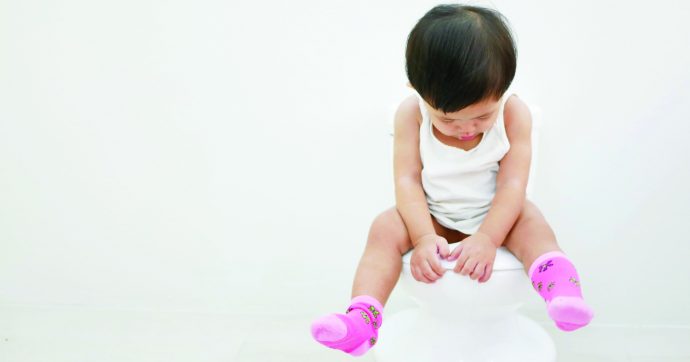

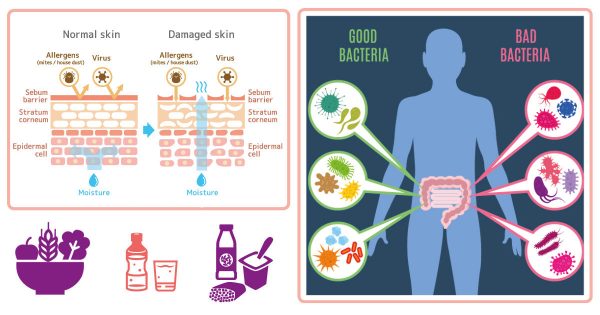

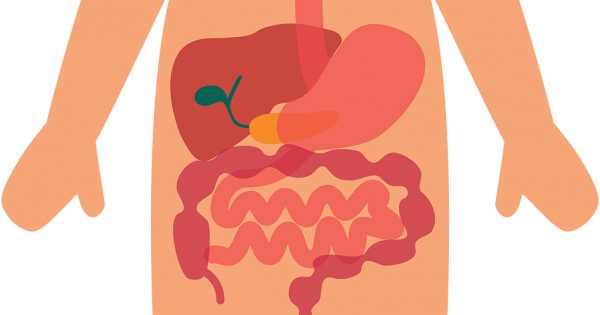
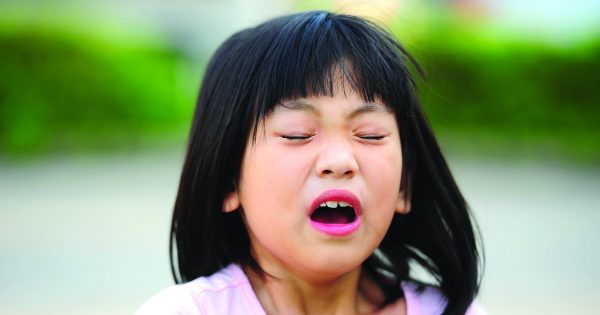
Comments